What is Chai?
When we say “chai”, we are referring to a beverage from the Indian subcontinent where people have been boiling local spices with black tea, milk and sugar for ages. In India, the word for tea is chai, so when the first Westerners who traveled to India and fell in love with this popular street food returned home, they told stories of a famed tea called chai.
More accurately, they were drinking masala chai. “Masala” is a Hindi word meaning “spice mix”, so “masala chai” loosely means “spiced tea”.
Whether you call it chai tea, masala chai or just chai, it is a delicious blend of mixed spices boiled with black tea, milk and sugar.
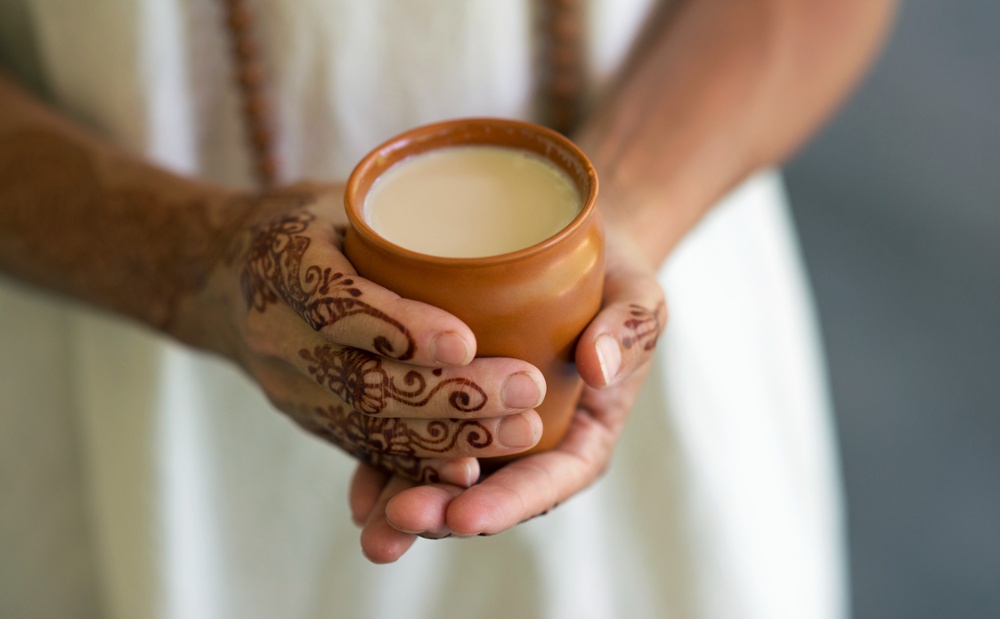
Why is chai called chai?
“Chai” is a common translation of the Hindi word “chāy” simply meaning “tea”. Around the world, the two most common names for tea are:
- A variation on “chai” or “cha”
- A variation on “tay” or “tea”
So if you are saying “chai tea”, you are literally saying "tea tea”!
What makes an authentic chai?
Authentic chai is one that is made as closely as possible to the way it’s made in India. Our masala chai is inspired by an ancient recipe from Northern India. Our exotic and aromatic spices are hand-blended and freshly ground for a uniquely vivid and balanced taste. Spices most commonly found in chai are those grown in India and Sri Lanka, where chai, as we know it is the West, comes from. Think cinnamon, cardamom, ginger, cloves and black peppercorns. Sometimes star anise nutmeg, allspice and turmeric are added too.
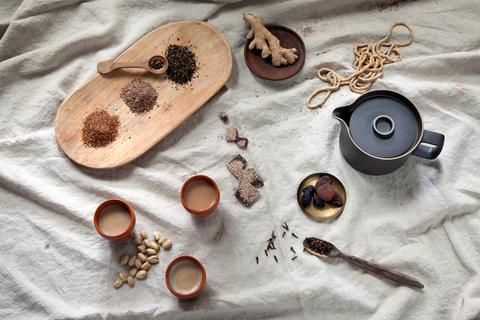
what does chai do for the body and mind?
Black tea and the array of spices used in chai provide a host of benefits for the body and mind. Here are a few:
-
Clarity and Alertness
It can wake you up! Black tea leaves naturally contain caffeine and can give you lasting energy and focus—like a cup of coffee without the jitters.
-
Helps Digestion
Chai can help with nausea relief! Ginger not only adds a little kick to your chai but also can help soothe an upset stomach.
-
Anti-inflammatory
Multiple studies have shown higher antioxidant levels and "flavonoids" within one hour of drinking tea. Research is ongoing, but it definitely packs a health punch! Ginger aids digestion by improving circulation and delivering oxygen to organs so they can perform optimally. Black pepper helps the pancreas produce digestive enzymes!
-
Ache and pain reliever
Clove has historically been used as a natural pain remedy, especially in toothaches!
is chai healthy?
Naturally, chai is extremely healthy! You can choose to add milk or sweeteners to your chai or chai latte for taste, and the choice of milk or sweeteners will determine how healthy your chai will be. We suggest you experiment with different types of milk for your chai latte and see which option you prefer. We like either almond milk or oat milk, and both are options that contain less fat than traditional milk. For sweeteners, some people prefer adding honey or organic cane sugar to their chai. Doing so is purely up to you! We find that a cup of chai gives our bodies and minds a boost!
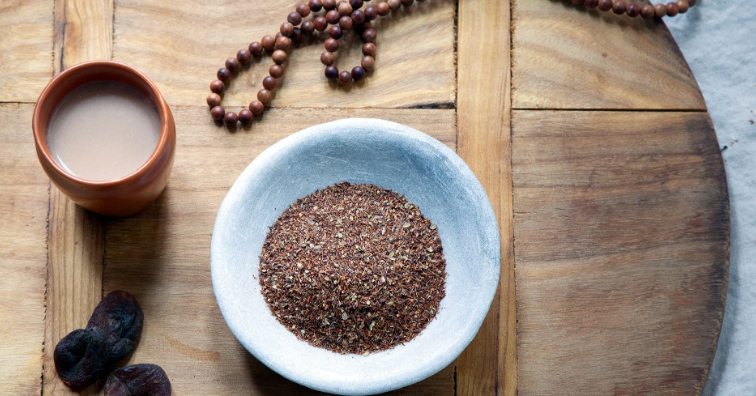
Does chai have caffeine?
The amount of caffeine in one cup of chai varies depending on a range of factors. Chai concentrate has less caffeine than loose-leaf tea, and loose-leaf tea has less caffeine than coffee. Plus, tea contains tannins. Tannins are a substance that helps your body absorb caffeine more slowly and calm the nervous system, so you experience less of the jittery feeling you get with coffee and instead, a more calm and focused state. If you’re still concerned about caffeine, however, rooibos chai is caffeine-free. Rooibos is known as red tea or red bush tea. It is grown in South Africa. It is an herbal tea and is a flavorful caffeine-free alternative.
is chai made with milk or water?
Well...both, actually. A cup of hot chai or iced chai may simply be brewed in water...a perfectly acceptable and delicious option. However, the warm comforting spice of a chai latte is hard to pass up. Chai lattes are made by brewing your chai in water and mixing it with an equal amount of milk, either hot or iced. So the answer to that question is up to you!
How long will loose-leaf chai keep?
We recommend using loose-leaf chai within 12 months of purchase though storage depends somewhat on how the tea is stored. Proper storage means keeping it in an airtight container and in a drawer or pantry away from direct sunlight. When stored properly, loose-leaf chai will last longer - though it will not spoil over time, it will lose its potency.
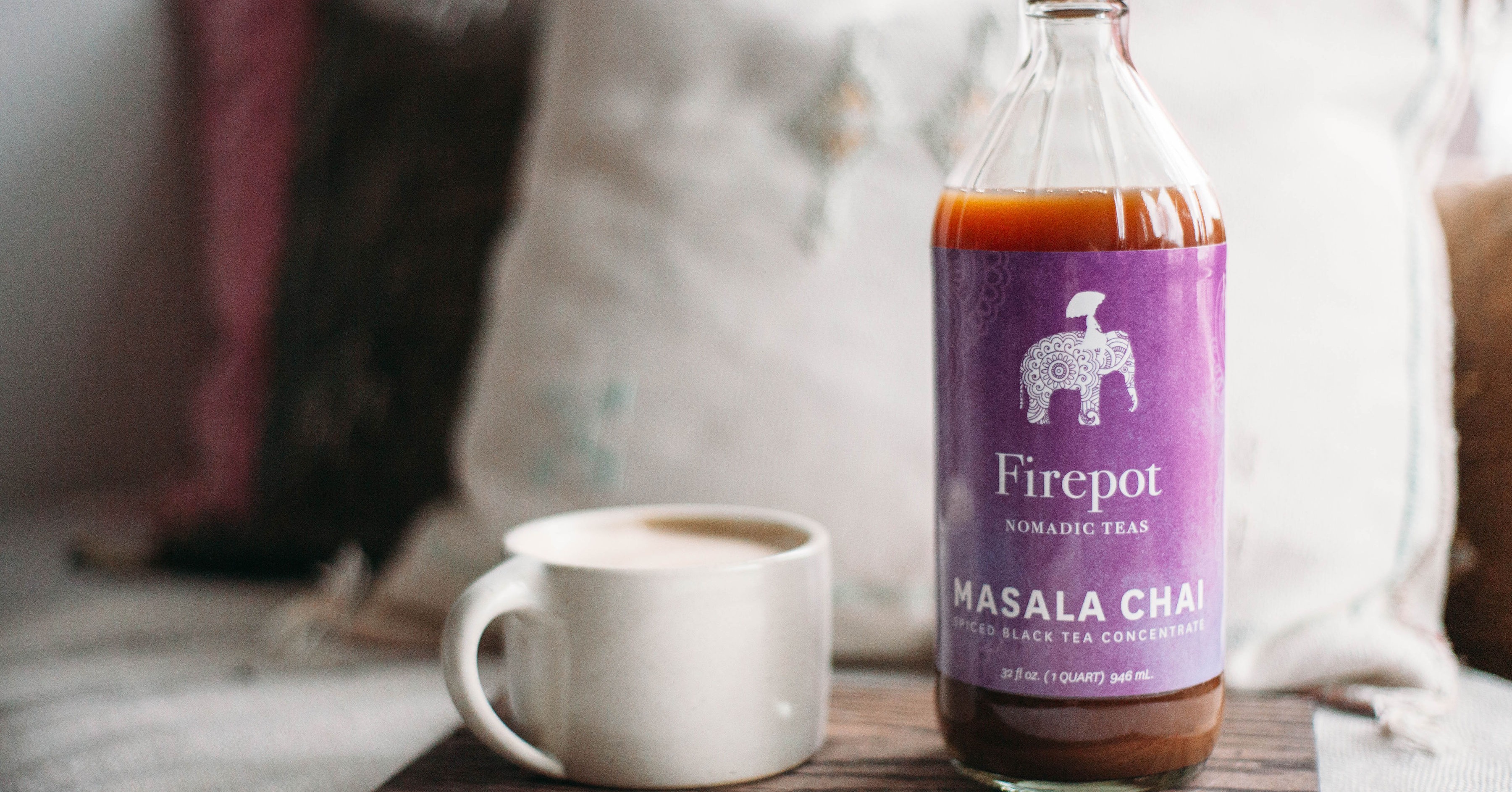
What is Firepot Chai Concentrate?
Life can get fast and it is nice to be able to pour, heat, and go! For those times, you can reach for a bottle of our chai concentrate. Slow-steeped and micro-brewed, our chai concentrates are made with tea, freshly-ground spices, sugar, vanilla, and a pinch of sea salt. Just add milk and heat, pour over ice, or create a recipe all your own. Chai, in concentrated form, gives you the ability to easily make your favorite latte on the run, and it’s also a simple way of incorporating the great taste of chai into your cooking and baking. We offer two types of chai concentrate: Masala Chai and Rooibos Chai.
How long will Firepot Chai Concentrate keep?
Firepot’s Chai Concentrate, once opened, will keep in your refrigerator for up to 4 weeks.
Our hope is that this information will get you started on your journey to discovering the allure of chai for yourself. This is just one of a host of chai resources we have available for budding devotees. Be sure to visit our Comprehensive Guide to Chai and take the time to download our Chai Recipe Guide. You’re sure to fall in love with it as much as we have.



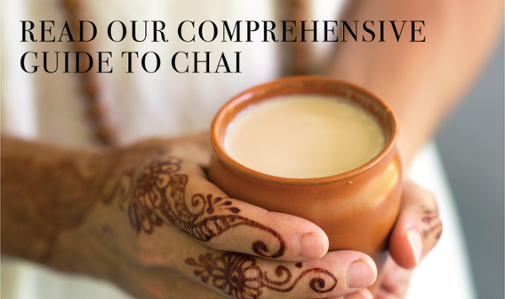



Leave a comment
Comments will be approved before showing up.